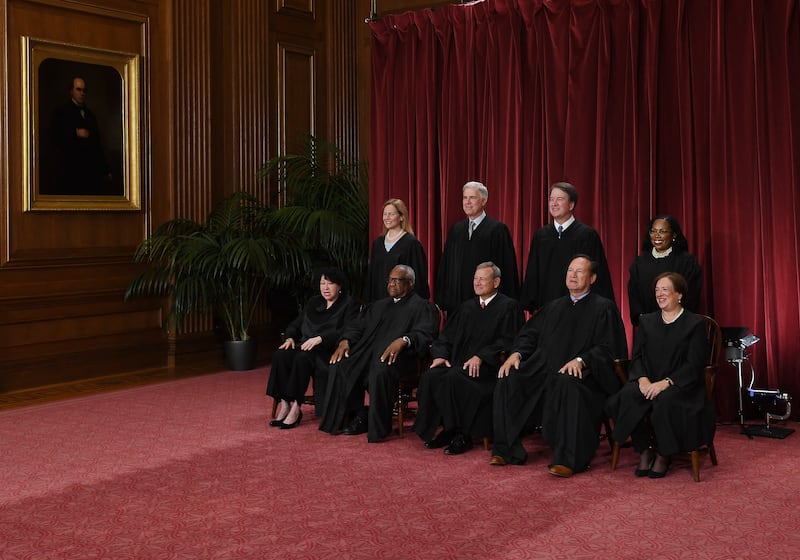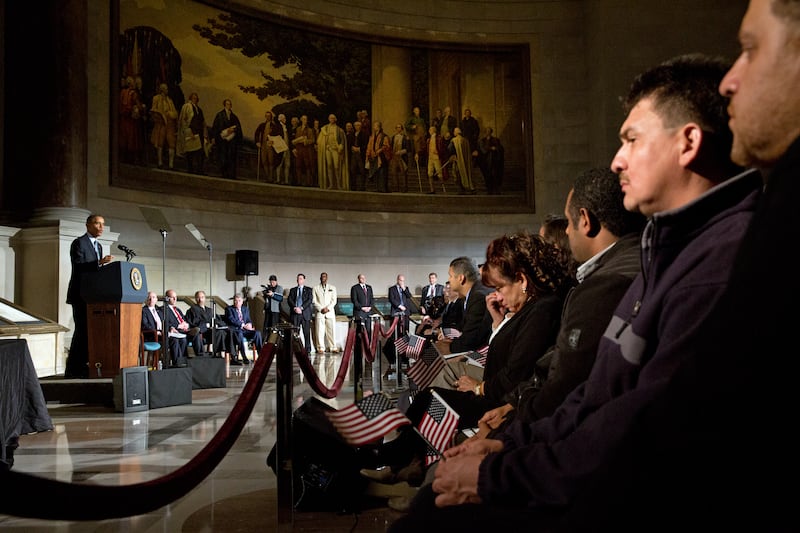What should we do with the Supreme Court now that we no longer need it?
Surely, the six wise jurists who ruled last year that the President of the United States effectively had the powers of a king must have thought this through. After all, they are regularly described as being the “conservative” members of the court. It is therefore hard to imagine that they would have taken an action so radical as to undo the entire rationale behind the American revolution without having given the consequences some thought.
Surely, when they determined—without any Constitutional foundation, and in the face of considerable precedent to the contrary—that a president should be granted broad immunity for any action that could conceivably be considered “official,” they must have thought about a situation in which a president might abuse such power? A situation like the one through which we are currently living, for example.
After all, the former president about whom they were ruling had been impeached twice by Congress, was the defendant in multiple cases at the time of their decision and had been found guilty of 34 felony counts just a month beforehand.
Perhaps they sought early retirement and a chance to spend more time on the yachts and private jets of their many “friends.”
Perhaps they thought the Supreme Court building might be converted to serve another purpose. It would, for example, make a fine clubhouse for members of the Federalist Society, its acres of grandiose marble and wood-paneled hideaways ideal for to hosting the private conversations of billionaires and their political errand boys.
(And perhaps they also intended a similar future for the public servants, government agencies and grand buildings of our nation’s capital that they must have known that our felon president would seek to destroy. After all, his desire for retribution was no secret at last summer.)
You can easily imagine Clarence Thomas’ sugar daddy Harlan Crow leaning forward from an overstuffed armchair, offering to light the cigars of Federalist Society kingpin Leonard Leo, Justice Samuel Alito and yes, Thomas too with a burning shred of the Constitution as they celebrate the victories dark money and unbridled judicial corruption had wrought. It might all be accompanied by a fine brandy, or perhaps a special bottle of well-chilled vodka gifted them by one of their great beneficiaries, Vladimir Putin.
Associate Justice Sonia Sotomayor, one of the three members of the high court with the integrity and foresight to dissent from its Trump v. United States ruling, was crystal clear in her summary of what was actually going on. She argued eloquently that “the President is now a king above the law” and, in a line that could ultimately serve as a eulogy for not just the court but our entire system of government, she concluded, “With fear for our democracy, I dissent.”
So you can’t say they were not warned. Which, given the heights to which the members of the majority have risen in their distinguished careers, must have surely meant that they could foresee a time like the present, when the president could and would ignore laws and the courts themselves. Chief Justice John Roberts even had the prescience to include among the specific areas in which the president’s actions could not be challenged: the issuing of pardons, the promulgation of immigration policies, the overseeing of foreign relations and the selection of judges. (Too bad SCOTUS will have been transformed into a truly moot court before Aileen Cannon makes her way to the bench.)
Indeed, the same justices were also clear in asserting the president could direct the Justice Department to do his bidding, whatever it might be—the interests of the people of the United States be damned.
Nor was their ruling conducted in a vacuum regarding who the first president to enter office with these expanded powers might be. They knew Donald Trump was the Republican nominee. They also knew they had made his election more likely by delaying presenting their decision until a date at which they knew every court case pending against him would have to be postponed until after the election and, very likely therefore, dropped altogether.
It must be the case, then, that this was the outcome they anticipated—and helped engineer with their eyes wide open. So is it really a Constitutional crisis if it has been co-authored by our foremost interpreters of the Constitution?

There is an irony, of course, in the fact that our high priests (and one priestess) of the law created the conditions in which President Trump would flex the powers they gave him. How? To choose one example, rounding up people without due process and sending them to a Central American concentration camp—and then, on live television, as he did during his meeting at the White House on Monday with El Salvadoran president Nayib Bukele, flout a unanimous decision by their court that his administration should take steps to undo some of that damage. It is an irony that will no doubt grow darker as Trump and his Department of Justice continue to flout, ignore, condemn and/or ridicule with other decisions from federal courts.
As the story always goes, it you create the monster, sooner or later the monster destroys you.
They knew all this and therefore knew that their collective decisions would likely make them not only America’s most consequential Supreme Court, but also our last Supreme Court worthy of the name.
But, perhaps they thought all that through. Perhaps, for example, in Trump eliminating key provisions from the Constitution—from Article 1 to Article 3 to much of the Bill of Rights itself—they saw a new future for the National Archives too. Perhaps they thought they could repurpose the limestone and granite edifice in which we currently keep and display the documents that helped usher America into being as the nation of laws we once were into a kind of a mausoleum in which to bury the last vestiges of American democracy—the right to due process, the right to freedom of speech and assembly, the right of all to vote, the spirit of welcoming and opportunity that once drew immigrants from around the world to the U.S. and made us the greatest country in the world.

And having said all that, perhaps the systematic destruction of each of those foundational elements of our society does raise one more question. It’s one our Chief Justice and his fellow grave-diggers may not have considered, and one for which there is no easy answer: What shall we call this country when the United States of America as we once knew and loved it no longer exists?
The post Opinion: The Supreme Court’s Majority Has Ruled Itself Out of Business appeared first on The Daily Beast.




